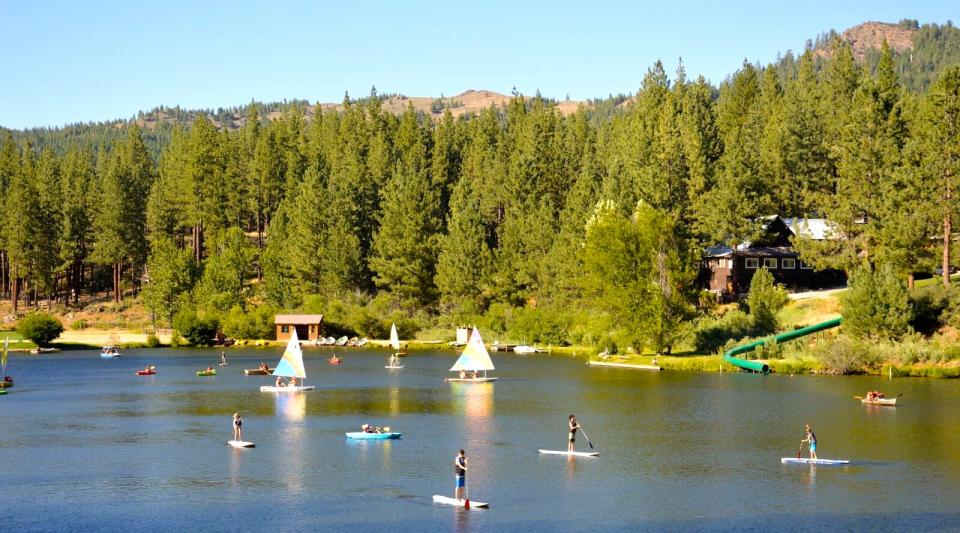
Summertime is right around the corner, and with that comes all sorts of activities that could expose kiddos with celiac disease and food allergies to foods that could be very harmful. Parents, understandably, have concerns about sleep-away camp. How does the camp work with children with special diets? Is the kitchen geared to accommodate their needs? Most importantly, does the staff have the knowledge to handle emergency situations if the child comes in contact with foods that could be potentially life threatening?
The time is now.
It’s not all that difficult to get your summer camp ready for every single camper by training the staff about best practices for food preparation and handling. And it’s not just dedicated summer camps that need to be prepared, says Dee Dee Vicino, AllerTrain’s™ Director of Training and Education. Universities often open up their campuses for the K-12 crowd, with special programs that run the gamut from arts and sports to eduction and leadership. Don’t drop the ball when it comes to food allergy and gluten-free training, is her advice. It’s important to pay attention to the needs of these guests. It could make the difference between a great camp experience or one that ends with a trip to the ER.

It starts with the intake process. With the very first contact, parents need to be assured that their child’s special dietary needs will be met. Admissions counselors should have food allergy and gluten-free training so they can speak knowledgeably about the camp’s policies and practices in those areas. How does the kitchen prevent cross contact? Is there a stock of epinephrine and where is it kept? Do counselors have ready access to it? What happens if another camper gets a care package from home and it contains allergens such as nuts?
All staff—counselors, kitchen staff, and nurses should receive ongoing training. This is not one-and-done; it needs to happen continuously, especially as new staff members are onboarded. Even nurses need training in order to be aware of celiac disease and allergy reactions.
How Indian Head Camp Does It
Lauren Rutkowski, Director/Owner of Indian Head Camp in Equinunk, PA has been watching the numbers of campers—and staff members—with special dietary requirements grow every year. “We wanted to respond to [those needs],” she says. “Just because you have a food allergy or special dietary need, you shouldn’t be excluded from experiencing the amazing journey of sleep-away camp.”

The folks at Indian Head Camp started looking at how they could create a safe environment for all campers, and instituted a nut-free policy nearly 20 years ago. That move was a combination of being proactive and responding to parent requests. “We found so many alternatives for nut products, that it became easy to offer a variety of choices” Lauren says.
The same goes for gluten-free campers. Even though Indian Head doesn’t have an entirely gluten-free kitchen, there is an area dedicated to gluten-free food preparation with its own utensils and ovens to ensure cross-contact doesn’t happen. “It’s actually quite easy to do,” states Lauren. “And there really is no excuse to be making sure that our kitchen and facility moves with the times and the directions that our populations are moving.”
Get Ready. Get Set. Go!
Getting your sleep-away camp up to speed when it comes to accommodating food allergies and gluten-free diets is all about training staff and making sure the kitchen is ready. It makes your camp more desirable for parents and gives those kids a very special (and safe) camping experience.



